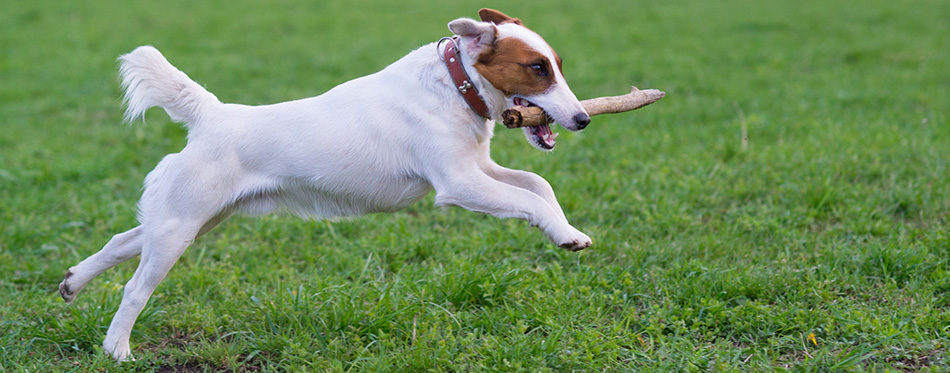Dogs need vitamins just like us pet parents do. Vitamin E plays a crucial role in keeping dogs healthy and happy. It is regarded as an equally important vitamin for dogs due to its high antioxidant concentration. This essential vitamin delivers a host of benefits to your pup’s health; hence pet parents must make it a part of their dog’s diet.
But before you integrate Vitamin E supplements into your pup’s diet, you first need to get in touch with your veterinarian. Vitamin E has potential benefits for your dog, but just like with anything, excessive amounts of Vitamin E may be detrimental to your dog’s health and wellbeing.
Continue reading to learn more about Vitamin E supplementation for dogs and its many uses and benefits.

A Brief Overview of Vitamin E
Vitamin E is a fat-soluble nutrient that plays a significant role in keeping your dog healthy. It is an essential nutrient for your beloved four-legged companion as it helps in the development of strong muscles, a fully-functional circulatory system, and enhances immune system functioning.
As a rich source of antioxidants, Vitamin E also protects the cells from damage caused by oxidative stress. Vitamin E gets rid of free radicals that increase in production due to aging.
In technical terms, Vitamin E naturally occurs in four forms. It pertains to a group of compounds known as tocopherols and tocotrienols. The two most popular Vitamin E compounds are gamma-tocopherol commonly found in corn oil and soybean, and alpha-tocopherol inherent in olive and sunflower oils.
Vitamin E also protects polyunsaturated fatty acids, Vitamin A, and sulfur-containing amino acids from destructive oxidation. By rule, the higher the concentration of polyunsaturated fatty acids, the bigger the dosage of Vitamin E will be needed to protect your dog from the harmful effects of oxidative stress.
Can Dogs Have Vitamin E in Their Diet?
Free radicals are atoms that contain free electrons and oxygen that can disrupt and damage the integrity of cells. An increase in free radicals can result in severe damage to the cell membrane, proteins, DNA, and other essential parts of your dog’s organ systems. Free radicals are naturally produced by the metabolic process transpiring within the body. But a fast increase of free radicals due to exposure to toxins, illness, and aging can cause serious side effects on your dog’s health and overall functioning.
Studies also reveal the free radical proliferation can result in cellular damage – a known contributor to heart disease. Although Vitamin E deficiency is uncommon among the canine species, it can still be a threat to your dog’s health when it develops.
The Uses and Benefits of Vitamin E Supplementation
Dog vitamins and minerals at the right dosage and concentration will contribute to your dog’s overall health and wellness. The same is true when supplementing Vitamin E for dogs:
- Connective tissue health
Vitamin E improves your canine’s skin and coat through its excellent connective tissue support. Ideal doses of Vitamin E in a dog’s diet reduces the loss of skin and muscle elasticity. Also, the anti-inflammatory properties of Vitamin E minimize allergy symptoms such as itching.
- Enhances immune system functioning
Unstable free radicals attack the healthy cells of the body, which in turn threatens your dog’s immune system functioning. By including Vitamin E in your dog’s diet, you can reduce the formation of free radicals, thereby preventing cell damage and the development of severe health conditions. Healthy doses of Vitamin E enhance your fur baby’s immunity, so he can be robust and lead a healthier and longer life.
- Promotes a shiny coat
Vitamin E deficiency makes your dog more vulnerable to skin conditions such as dermatitis, dandruff, rashes, and skin infections, to name a few. Changing your dog’s diet to one that includes high doses of Vitamin E will promote a lustrous and shiny coat.
Vitamin E also treats dry, patchy, and itchy skin brought about by a skin condition called atopic dermatitis. By increasing Vitamin E levels in a dog’s diet, your dog will experience fewer dermatitis attacks and symptoms.
Other benefits of Vitamin E supplementation in dogs are as follows:
- Promotes fertility
- Slows down the aging process
- Regulates digestive system functioning
- Prevents degenerative conditions such as cataract development
- Supports respiratory functioning
Check out our guide on the Best Dog Vitamins for more info.

Topical Use of Vitamin E for Dogs
Apart from Vitamin E intake through oral supplementation and diet, dogs can benefit from Vitamin E topical application, too. Vitamin E can be administered by way of oils and dog shampoos that are directly applied to the skin or coat.
Topical application of Vitamin E for dog’s itchy skin, skin lesions, dandruff, and dermatitis. Vitamin E topicals will not only treat allergies and skin conditions, but will enhance the shine, gloss, and luster factors of your dog’s coat.
You may also use Vitamin E oil to manage ear infections. Simply place a drop of Vitamin E into the infected ear to reduce pain and inflammation. According to vets, you may only apply the oil to the ear flap, as it may cause side effects when used directly in the ear canal.
Vitamin E oil may also be used to treat superficial sores, calluses, and bug bites. Its regenerating properties also help in healing damaged skin. You may apply the oil directly on dry, flaky, and itchy skin for two to five weeks to see improvements on your dog’s skin.
Is Vitamin E Also Present in a Dog’s Diet?
Another method of supplementing your dog with Vitamin E is through his diet. Premium dog foods, as well as green leafy vegetables and plant oils, contain high doses of Vitamin E. Quality dry dog food or kibbles, provide a healthy amount of Vitamin E.
A lack of Vitamin E in your dog’s diet is manifested through the presence of skin-related issues. Other signs of Vitamin E deficiency are as follows:
- Excessive molting
- Dry and flaky skin
- Poor coat condition
- Thinning or bald patches on a dog’s coat
If you add oily fish, linseed oil, olive oil, cod liver oil, or other beneficial oils to your canine’s food, Vitamin E supplementation is a must. Vitamin E will negate the increase of free radicals caused by oil intake. Head over to our review of the best fish oil for dogs for more options.
Your dog’s body language cues are also telling if he needs additional Vitamin E:
- Pacing
- Weakness
- Panting
- Lack of focus or concentration
- Head bobbing
- Sleepiness
- Lack of appetite
How Can You Train Your Dog to Consume Vitamin E?
It can be challenging to give your dog extra doses of Vitamin E. Some dogs are finicky eaters, which can make it tricky to supplement Vitamin E into their daily diet. Experts suggest the addition of Vitamin E-rich foods into their meals. Some of the most common sources of Vitamin E are peanuts, spinach, eggs, and sunflower seed.
If your dog is averse to taking these foods, do not force-feed them. If this is the case, it is better to train your lovable pup to consume Vitamin E in supplement form. You may also try giving them specially-formulate Vitamin supplement foods in the form of kibbles or dog treats.
If your dog is having a hard time swallowing Vitamin E pills or capsules, we suggest hiding the supplements in his or her food instead. With this technique, your dog will quickly gobble up the food without noticing that he has ingested the Vitamin E pill in the process. Find out more about dog pill shooter here.
For pet parents whose dogs simply cannot be tricked, we recommend training the pup to consume Vitamin E supplement treats. They can even be used as a reward during obedience training. If this still doesn’t do the trick, we suggest integrating the Vitamin E treat to a throw-and-catch game. In this technique, you can condition your dog to catch the treat and eat it, making it more fun for them to consume Vitamin E than perceiving it as a chore.
Safe Vitamin E Dosage for Dogs
Vitamin E is typically available in soft gel capsules for oral consumption and oil form for topical application. It is generally safe to feed your dog Vitamin E capsules as long as the supplement does not contain any toxic additives and ingredients.
The ideal feeding dosage and formulation depend on various factors such as the amount of food your pooch eats daily, their stage of life, size, and activity levels. By rule, breeding and active dogs will require a higher dose of Vitamin E. For more accurate dosage calculation; we recommend for you to consult with your dog’s veterinary doctor.
Vitamin E dosage between 4,000 and 6,000 IU doesn’t induce side effects or adverse effects, and vets recommend giving smaller dog breeds 400 IU per day and 800 IU for larger breeds.

Vitamin E Supplementation Safety Tips
- Carefully monitor the amount of Vitamin E that you include in your dog’s food.
- We recommend discussing the ideal dosage and type of supplement with your vet. They will provide you with the exact dosage and concentration that is safe and effective for your dog. Determining the right amount of Vitamin E for your dog will prevent side effects and Vitamin E overdose.
- Vitamin E supplements for dogs are different from human-grade Vitamin E. Do not feed your dog with your Vitamin E supplements.
Vitamin E is highly-recommended by vets as they keep your pooch healthy, happy, and live longer. The best means to guarantee that your dog is getting enough Vitamin E is by giving them quality pet foods, dermatologist-approved oils and shampoos, and superior-quality supplements.

